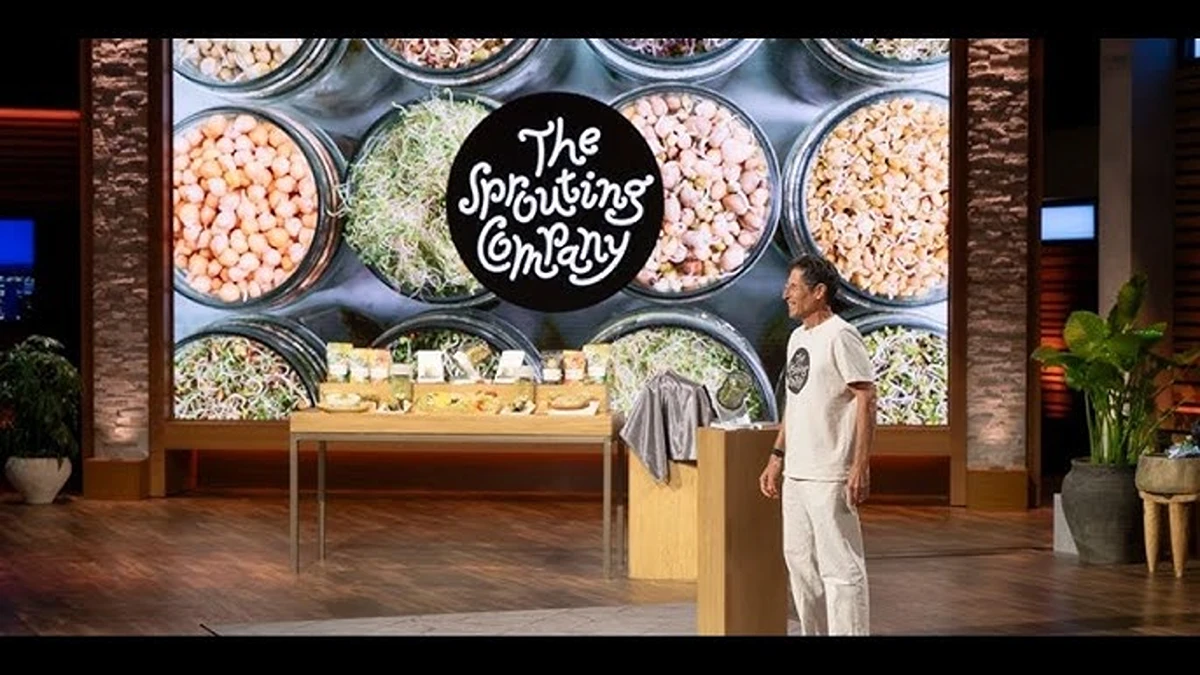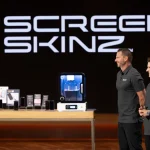
In “Shark Tank Season 17, Episode 4,” which aired on October 22, 2025, viewers watched the entrepreneur Doug Evans rolling out a home sprouting device. His brand, The Sprouting Company, aimed at bringing nutrient-dense and fresh sprouts to every household.
Despite their impressive traction rate and a compelling mission, the investors let the deal slip through. Moreover, fans believe that it was a strategic blunder by the Sharks. Here’s why the viewers are calling it “the biggest miss” of episode 4.
The Pitch & What Made It Compelling
On the stage, Doug Evans laid out a clear story. After witnessing her mother’s and father’s deaths and his brother’s diet-related illness, he shifted to a remote spot in the Mojave Desert. Wherein, access to traditional grocery stores was minimal.
Thus, he began sprouting seeds in the jars, which eventually led to designing a countertop kit for growing sprouts. The countertop system enabled anyone to grow sprouts without soil, sunlight, or expertise.
Numbers of The Sprouting Company also caught attention:
- Revenue of about US$1.5 million after 18 months.
- A simple cost structure: the founder claimed a production cost of about $15 per unit, selling for $100.
- A kit plus seed bundle that fits modern kitchen lifestyles, tapping into wellness, home food, and urban living trends.
In short, the product had novelty, a meaningful mission (health and sustainability), startup traction, and a clear target audience.
Why Did the Sharks Pass?
Despite the appeal, none of the Sharks struck a deal. According to the recaps:
- Doug asked for $500,000 in exchange for 5% equity (implying a $10 million valuation).
- Shark Kevin O’Leary offered $500,000 for 25% equity; Daymond John matched. Both felt the valuation and equity ask were misaligned.
- Doug tried to negotiate for much less equity (around 6.5%), which the Sharks deemed too little and therefore walked away.
- Concerns raised included: niche market (sprouting kit vs mass-consumer appliance), unclear scalability of seed sales, and potential competition/replication.
Why Fans Think This Was a Miss
From the viewers’ vantage point, here are the core reasons many believe the Sharks misstepped:
1. A Unique Value Proposition
Sprouts have long been part of diet culture, but rarely positioned as a mainstream home device. The Sprouting Company brought simplicity to what is often perceived as a niche. One Reddit commentator put it:
“Probably The Sprouting Company is just not for Shark Tank … but someone missed out.”
Fans see this as a product with broad health, DIY, home-food appeal and less competition than many saturated categories.
2. Strong Early Metrics
$1.5 million in revenue in under two years is a credible signal for a niche home product, especially one with direct-to-consumer potential. The “$15 cost → $100 sell price” headline grabbed attention. Fans argue that Sharks tend to pass on promising early-stage companies when they’re too focused on risk.
3. Timing Meets Trend
Consumers increasingly favor wellness, home-prepared food, self-sufficiency, and minimalist devices. A countertop sprouter fits the zeitgeist. With wellness electronics, indoor gardening, and health-food microtrends all rising, many believe the product was ahead of its time.
4. Investment Ignored a Growth Story
While the Sharks balked at valuation and equity, fans feel they missed a story of brand, mission, and category-creation. The Sprouting Company could have been positioned as more than a kit. It could have been put as a movement toward everyday kitchen wellness.
But It’s Not All Black and White — Some Legitimate Concerns
Of course, the Sharks are tasked with risk evaluation. Some of the concerns they raised (and that fans highlight too) include:
- Market size & repeat purchase: How big is the addressable market for home sprouting equipment? Are seed sales recurring or one-time?
- Durability & competition: A $100 price tag for a simple device may face low entry barriers from competitors or copycats.
- Scalability & margins: Even with a high margin per unit, scaling the D2C device + consumable model is resource-intensive (manufacturing, logistics, shipping returns).
- Valuation vs ask: A $10 million valuation while still early stage raised alarm — the Sharks often guard against over-valued bets
- Consumer adoption barriers: Though sprouting is trendy among health-enthusiasts, broader mass-market adoption may be slower, raising risk.
These are valid business concerns, and fans acknowledging the miss often concede that the Sharks had reasons to hesitate.
What Could Have Changed the Outcome?
In talking to fans and dissecting the pitch, a few key shifts might have convinced the Sharks (or future investors) to bite:
- Lower equity ask and more balanced valuation: Asking for say $500K for 10-15% vs 5% would align more easily with risk calculators.
- Clearer repeat-purchase strategy: Highlighting seed-bundle subscription, kits upgrade path, consumables and accessories would boost lifetime value.
- Stronger consumer adoption proof: More testimonials, churn rates, repeat purchase metrics.
- Broader positioning: Instead of “sprouting kit for health-nerds,” angle toward “every kitchen green kit” (indoor gardening boom).
- Defensible advantage: While patents exist, according to the founder, they might need more patent or trade-secret clarity to deter knockoffs.
Why Fans Are Still Rooting for It
In a world of pitches for snacks, fashion, apps and services, The Sprouting Company stood out as a tangible hardware and consumable offering with health, sustainability, and mission built in.
Fans believe that the Sharks prioritized metrics over mission, timing, and category potential. Moreover, letting this one walk means missing a brand that could have grown big.





















